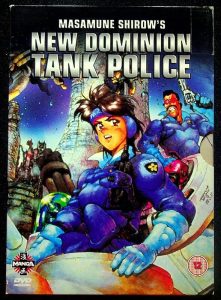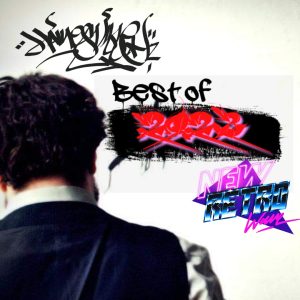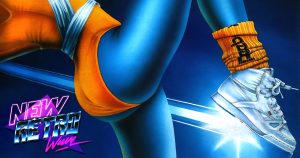Dark, heavy and epic are the first three words that come to mind when one first experi-ences the music of darkwave project Technophobia. After teasing its audience with a couple of singles, promises were kept with the release of the band’s debut full-length rec-ord, titled Flicker Out, an engaging record full of pulsating EBM/Industrial tracks and grave, gripping melodies delivered by Katie Petix. Be it through it’s hypnotic beats or it’s heavy ambience, Flicker Out immerses its listener in it own vivid universe and confronts him with a lustful indulgence in disorder and gloom. Moreover, amidst the somber indus-trial moods of Technophobia’s music lies a strong, heartful message and commitment to social causes. We got a hold of Stephen and Katie Petix for a quick interview regarding the bands’ debut release.

First off, could you tell us a bit about your musical background? (e.g When you started to play, what music, what instrument etc…)
KP: I started my musical journey when I was 9. I wanted to play the saxophone, but my Uncle Matt had a clarinet to give me, and so clarinet it was. Throughout my whole child-hood and teenage years I played in school bands, by the time I got to high school I started private lessons and playing in many different ensembles. I was super lucky to have a great teacher in high school as well as develop tight friendships with other teens who were pas-sionate about music. My teacher and friends were very supportive and helped me gain confidence as a musician. After high school I went on to study music at University, which seemed like a good idea at the time, but in the end was a gigantic disaster. I was so accus-tomed to the support and friendships of my musical youth that the competitive nature of being a professional classical musician just tore me to bits. It ruined me as a performer for more than a decade. It wasn’t until Technophobia that I was able to dip my toes back into the musical performance pool.
SP: I was pretty lucky, I grew up in a musical household. My father is a musician and I can remember that there was almost always some form of music on or being played. I de-veloped a love for music yearly on for sure, but it wasn’t until I inherited my brother’s Dead Kennedys records that it was solidified. He bought some punk records during a brief phase he was going through, but it wasn’t a phase for me. It was all downhill from there! Haha I started playing guitar and then saxophone and then synthesizers, I was pretty ob-sessed! All there was to me was music and skateboarding. I was kind of all over the place musically…and still am! I have played a lot of bands and a lot of different types of bands. From punk, hardcore, to ska, to deathrock, post-punk and now our dark electronic band. Music has definitely been a reoccurring theme in my life.
How did Technophobia come about?
KP: Steve has been playing in other people’s bands for as long as I’ve known him (and longer before that), and he’s always said when the time was right that he wanted to start his own project. In 2013 that time finally came after he finished his Masters Degree. With ample free time on his hands he began collecting the gear, tweaking and sampling sounds, and looking for bandmates. Steve I think had wanted me to be in Technophobia from the get-go, but knowing my history wasn’t sure if I would be interested. I was reluctant, but the more I heard him working on it, the harder it was for me to say no. At the time I initially signed on, I was playing lead and bass synths and singing backing vocals to our lead sing-er Denman. Alas, after a great year with us, Denman moved to New York and we were on the hunt for a new singer. Again, I think Steve immediately knew he wanted me to sing, but I wasn’t so sure. I hadn’t ever sung front and center before, I mean, I felt as though I just barely found my footing singing backing vocals. We looked for quite some time and just didn’t find anyone to fit the bill; friends kept asking me why I didn’t take the reins. So, I finally did.
SP: Pretty much what Katie said. When Denman left we decided to totally reboot the band sonically, musically and vocally. We scraped all the songs we had written thus far. I don’t get nostalgic on things like that. I don’t see the need to force things. So we took a lot of time reconfiguring our gear and creating sounds before we even started writing songs. I feel we emerged with a darker, more cohesive sound. I am really happy where this project has ended up.
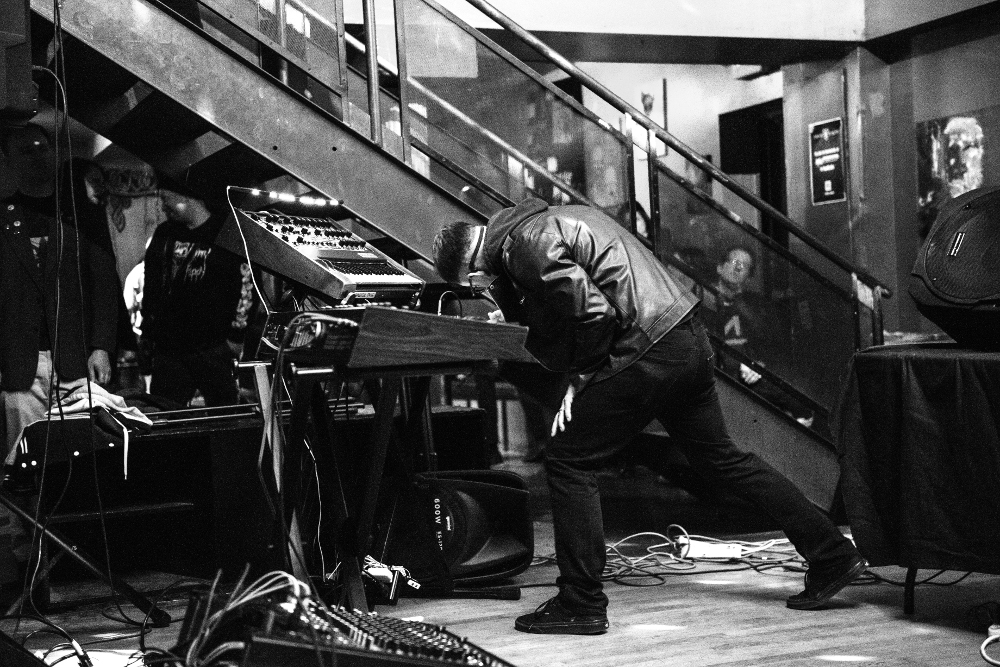
Flicker Out is Technophobia’s first full-length release. First off, could you tell us about the album title?
KP: The album title is an abbreviated sentiment from Jean-Paul Sartre’s play, No Exit. We pulled much inspiration from this, specifically the 1962 film adaptation for the whole of the album. The full quote is from the character Inez: “I can’t get on without making people suffer. Like a live coal. A live coal in others’ hearts. When I’m alone I flicker out. For six months I flamed away in her heart, till there was nothing but a cinder.”
SP: I really liked this sentiment. The idea that you only exist if your existence is acknowl-edged. There is something beautiful there to me. I felt that this also paired with the songs we were writing for this album perfectly. It was really important to us that this album be cohesive lyrically as much as musically.
Could you tell us a few words about what the album is about?
KP: As mentioned previously, much of the album pulls from the existential ideas and sen-timents of Jean-Paul Sartre’s play, No Exit. Throughout the whole of the album there are elements of hopelessness, disillusion, powerlessness. I think these feelings are things all of us can relate to in life at some point, to some level.
SP: There is definitely a theme of isolation throughout this entire album and I wanted to focus a bit on the positive aspects, the beauty of isolation. There is something very comfort-ing to me about the principle that you cannot create or destroy matter, especially when it comes to death. Insignificance in the face of the vastness of space and time is true isolation, but the idea that we will eventually breakdown to be part of the vastness is beautiful. Well, it is to me anyway.
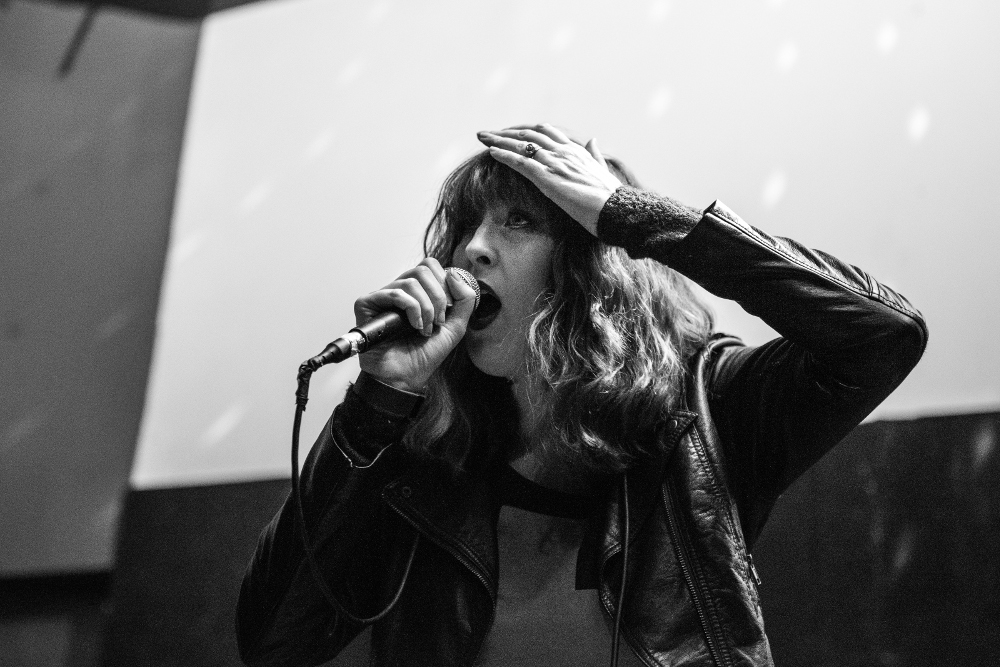
I picked up a quote from Jean-Paul Sartre at the start of Fall to Nothing. Could you explain what made you decide to include it on this particular track?
KP: We actually have many little samples from the 1962 film adaptation sprinkled throughout the album, but yes, that is definitely the largest of the samples pulled from the film.
SP: In many ways I felt that No Exit touched on a lot of the same ideas we were writing about for this album. That is why we sampled it on this record. There is a lot of irony in the idea that we need people to acknowledge us, to exist, but it is those same people that ruin everything. But, I don’t think Flicker Out is a negative album though. I just feel it is honest from our point of view. Fall to Nothing uses a lot of imagery associated with isolation and insignificance; it felt like a perfect sample for that song.
The album came out under your own Non-profit label Working Order Records, where 100% of the proceeds from each record is donated to a charity. How and and in what context did WOR come about
SP: Last year while we were recording Flicker Out, Katie and I were talking a lot about what we were going to do with the record once we were finished. Ya know, what labels we were going to reach out to, what contacts we had and so on. It be-came pretty apparent to us that a traditional sort of label was really not going to fit how we were feeling musically and personally. As these conversations progressed the idea surfaced about donating all the money raised to some sort of charity. The real push forward happened during a snow storm last January, when we were trapped in our apartment and I pitched the idea to start an actual nonprofit to Katie. It really all snowballed from there…ugg, sorry about that pun…that’s fucking terrible! So we filed all our paperwork, got all our licenses and approvals and within a month or so we were an official 501(C)(3) nonprofit charity. The tagline for Working Order Records is Music-Impact-Vinyl-Change with a mission of bridging the gap between charitable giv-ing and musician ideology. For us is makes more sense to leverage our music to make a positive impact in our community. This first campaign spans six month, from mid May through October 31. During this time 100% of all proceed raised from our new LP, 12” single and all of our merch will go toward our fundraising goal. The model of this record label is to partner with bands to release short-run, limited, colored vinyl to raise money and awareness for the community based charity of their choosing. We’re excited to see how this nonprofit grows and develops over then next few years.
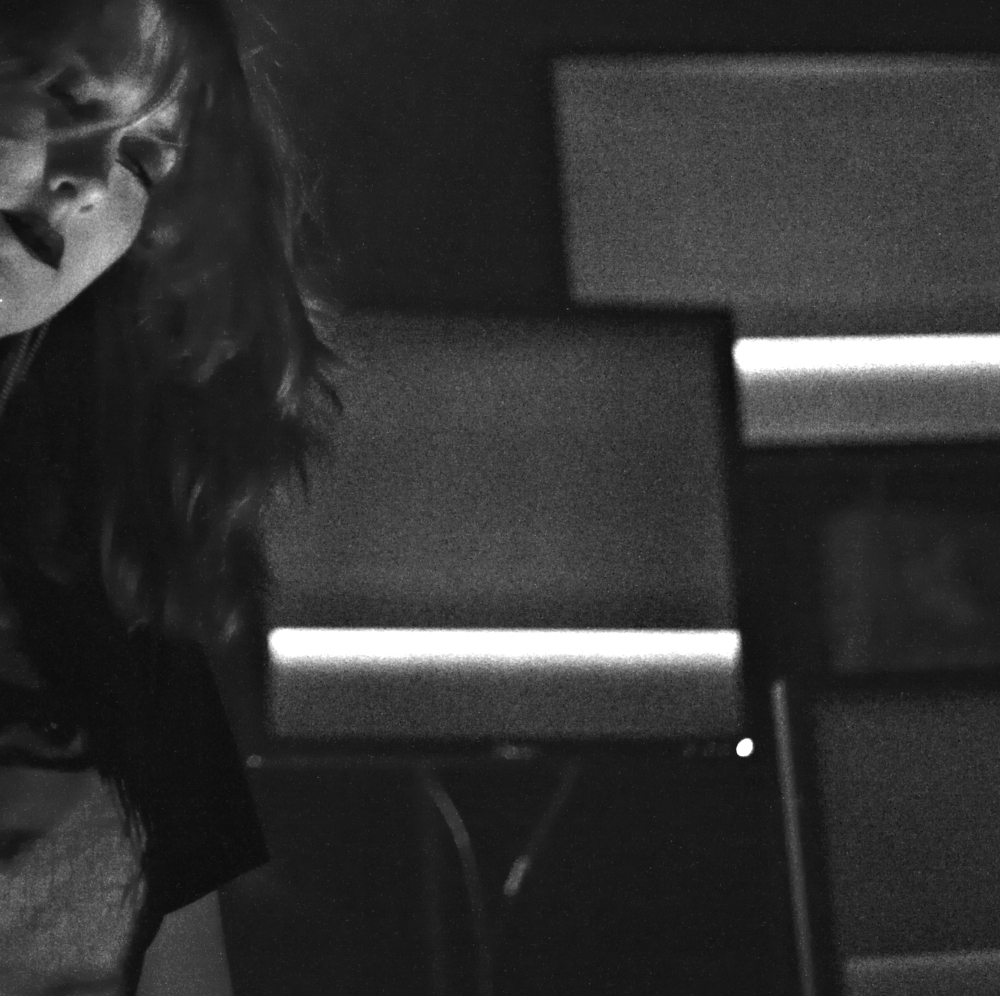
All proceeds for Flicker Out will be donated to the Life Pieces to Masterpieces Organi-sation. Could you tell us a few words about this organisation and how you first came across it?
KP: I truthfully could not be more proud to be working with Life Pieces To Masterpieces. Life Piece’s is an After School Program providing a unique daily opportunity for African American boys and young men to build their leadership and academic skills, advance their social/emotional development, and build their confidence through creative expression. The program teaches individuals to use their own unique set of gifts, talents, and abilities to make positive choices and navigate through challenging circumstances. The social climate in America right now is a scary one. I can’t imagine what it must feel like to be frightened just because of the color of your skin, I am honored to be donating the profits of our art to assist in the cause.
SP: We actually first heard about LPTM on the radio, when we heard a piece NPR did about how this program was helping kids who have been victims of gun violence. We were both extremely moved by the story and when it came time to decide who we wanted to partner with it, they were the obvious choice. Washington DC is a very divided city. I like the way Selvon Waldron says it “DC is a story of the river!” He is the Executive Director of LPTM. One side of the river has some of the highest performing schools in the country and on the other side some of the lowest. DC has the highest disparity rates in the US in terms of unemployment, high school graduation, HIV, homicide and teen pregnancy. LPTM has a 100% high school success rate! They really are making a huge impact and we are excited to be a part of it.
Your work in music seems intertwined with your dedication to animal rights and so-cial causes. What is your stance on artistic creation in relation to ethics? (Very broad question, feel free to answer or twist/narrow narrow the question down whichever way you see fit).
KP: Everyone creates for their own reasons, and whatever reason they have is totally legit. I love happy and fun music. I love songs. I love pop music. Music and art do not have to pull from some social injustice to be great. Both Steve and myself have both in the past and presently had creative outlets that have no other end goal than to be fun. But Technopho-bia definitely isn’t that. Without ever having actually discussed it, I think we both intend to express the more serious sides of ourselves and our worlds.
SP: Katie is clearly much more eloquent that I am! Haha It’s interesting, we have been asked several times how we feel about people getting paid for their music as we have de-cided to take a different approach (not saying that is what you are asking). This has con-fused me a bit. We never intended for Working Order Records or Technophobia for that matter to come from a place of righteousness. It is the exact opposite actually, we want to be very inclusionary and welcoming to anyone who supports our music or wants to get involved. I do feel that leveraging our music to raise funding and awareness for organiza-tions that are making an impact is a perfect fit for us, and as you put it, our ethics. But, it is very difficult being a musician or artist and anyone that can get paid, should get paid for their art. I feel that the music industry too often treats records more like commodities ra-ther than a form of artistic expression, and we wanted to sway as far away from that model as we could.
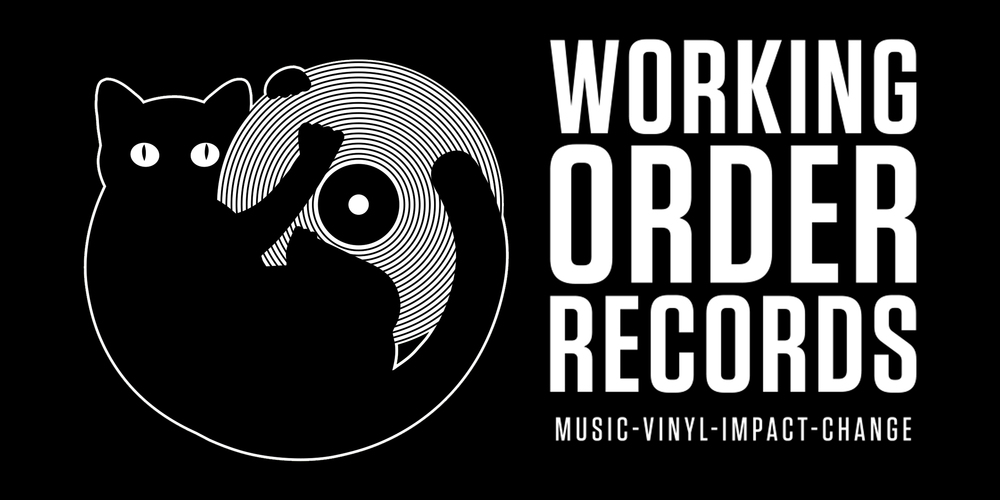
What else can we expect from the label in the near future?
SP: Now that the first WOR campaign is at its halfway point and we are already over 2/3 toward our fundraising goal we have started looking for funding. The next step is to apply for grants and other sorts of external funding so we can launch our next campaign that is yet to be determined. We do have some bands in mind we want to approach, but we need to get some funding in the door first. We are eternally optimistic!
Quick question for our gear-savvy readers out there: could you tell us a few words about the equipment and/or techniques you like to use?
SP: Sure! Many of the sequences we write that ultimately get turned into songs, are built using a layered approach. We do a great deal of sampling in our music, and I don’t just mean vocal samples. We use a lot of found sounds that we manipulate into something that we can use. For example the sound at the beginning of Metal Limb on our record is from a movie. A sound that we played in reverse and time stretched to create a new unique sound. We use all hardware and analog synthesizers for recording and live. We use a Sequential Circuits Pro One for all our basslines, which without a doubt is the best bass sound I have found. The centerpiece to our sound though is my Korg Polysix. In my opinion there is no analog synth that is as lush and warm sounding as a Polysix. It’s so important we acquired a second unit as a backup. We also use Doepfer Dark Energy, and a Novation MiniNova.
To finish off : could you name one of your favorite albums, movies and books?
KP: This is such a hard question!!! It totally depends on my mood, how my week has been, who I’m hanging with. So, I will go with right in this instant:
Giza by Gatekeeper
Rosemary’s Baby by Roman Polanski
The Giver Quartet by Lois Lowry
SP: Yikes! Hmmm…
Black Celebration by Depeche Mode
Big Trouble in Little China by John Carpenter
Factotum by Charles Bukowski
Working Order Records:
http://www.workingorderrecords.org
Technophobia:
http://www.technophobiamusic.com
https://www.facebook.com/Technophobiamusic/
https://soundcloud.com/technophobia-dc


